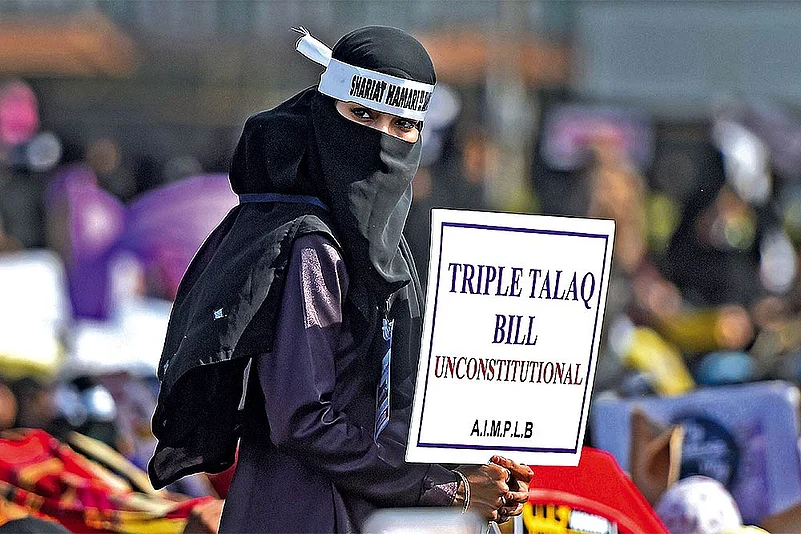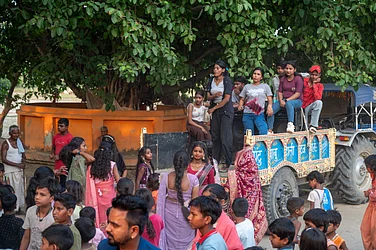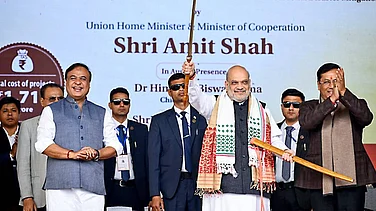It has been a year since the Supreme Court’s gavel fell on triple talaq—the practice of Muslim men divorcing their wives by uttering the word ‘talaq’ (divorce) thrice. But the government is struggling to get the bill passed. The All India Muslim Personal Law Board (AIMPLB) says it oversteps the mandate given by the apex court.
In the meantime, many Muslim women continue to wait for the justice promised to them. Shaheen, 38, of Ratnagiri district in Maharashtra was divorced by her husband over WhatApp! This happened after the SC’s 2017 judgment, but the law is still not in place to provide justice to her. She’s partially-disabled and has been divorced once before. She met her second husband, the Saudi Arabia-based Asad, on Facebook. The two were hitched in a brief ceremony and Asad took off for Saudi Arabia soon after. In a few months, his calls and messages stopped, then, one day, he simply texted “talaq” to her.
She tried contacting him, but he had cut her off. Even the cops couldn’t trace him. “What has happened to me is unfair. They (his family) want us to agree to a mutual divorce (moklik), without maintenance. I hope something will be done when the new law is in force,” says Shaheen.
Zainab (32), from Mumbai, faced similar injustice. She married her cousin, who had a degree in hotel management from a UK university. The promise of a cushy life in Mumbai dissipated soon after the 2012 wedding. Zainab’s in-laws harassed her for dowry and her husband used her gold jewellery as collateral to borrow money for his business.
When she lodged a domestic violence FIR, her husband sent her talaq messages through WhatsApp, and later by post. This too happened after the 2017 verdict. Now, the husband is engaged to another woman, while Zainab is left stranded. The police have been of little help.
“Around 300 cases of triple talaq were reported over the past year,” says Zafaryab Jilani, secretary, AIMPLB. “The rate was more in earlier years, though there’s no concrete data. So, 300 is not an alarming figure. There’s no opposition from the community to the judgment. But the issue around the bill is separate from what the SC ruled; that decision was restricted to instant talaq,” he adds.
The Narendra Modi government drafted the Muslim Women (Protection of Rights on Marriage) Bill last year. The opposition had raised objection to it in the Lok Sabha since it prescribed a jail term for offenders.
“We are worried about the criminalisation aspect, given how things have become for the minorities. If triple talaq is not valid, there was no need to try making it a non-bailable offence (it is now bailable) against men,” says Hasina Khan, of Bebaak Collective. “The issue of rights of Muslim women should not be used to push proposals like the uniform civil code,” she adds. She also points to how politics played to divide opinion on an issue that clearly needed to be addressed by law: “Soon after the SC’s decision last year, political parties got involved and there was an attempt of pitting women against women by the AIMPLB, which is unfortunate.”
The government later ironed out the chinks, in consultation with stakeholders, and introduced provisions for bail. “The first draft was rather abrupt, focused on punishment rather than justice for the women. Following our suggestions, the government amended the law, and now, only women or their blood relatives can lodge an FIR,” says Zakia Soman, convenor of the Bharatiya Muslim Mahila Andolan (BMMA). “Earlier, there was a provision for subsistence allowance for only six months for the divorced woman, without clarity of who was to bear that expense. The amendments cleared matters related to maintenance and the custody of children.”
Sources say that the government is considering an ordinance to enforce the law while the bill is pending clearance. But even that would have to go through a parliamentary approval.
“Despite the PM’s interest in the issue, there is resistance from the opposition parties, which is quite demotivating because this is about gender justice and not politics. Muslim women continue to be ruled under a colonial law which favours a patriarchal system,” says Tanveer Nasreen, head of women’s studies at Burdwan University. “Earlier this year, we met the President and made a request for an ordinance,” she adds.
Several organisations in various parts of the country have been working on sensitising Muslim women on what they are entitled to since the Supreme Court ruling on the issue.
“Muslim women have filed several FIRs against the arbitrary instant talaq after it was declared void by the SC. They can no longer be suppressed in the name of religious tradition,” says Nasreen.
BMMA conducts workshops and has distributed thousands of pamphlets in many languages. These contain extracts from the Quran that prescribe education to women and their equality with men in certain contexts.
“During our work, Muslim women made it clear that they want the law. Families have started to understand that polygamy in the contemporary context, instant talaq and nikah halala, are not part of the Quran. Now, even older women and families come back to say that it is unfair to take away the gender justice prescribed by the Quran,” says Soman.
BMMA founder Noorjehan Safia Niaz sheds light on different pressure tactics being used on women in Sharia courts, asking them to agree for divorce. “But it’s at least possible to negotiate in these matters, better than being left in the lurch after giving divorce through text messages. Also, the men in the community are increasingly supporting the court verdict. But unless the law comes into force soon, there is a risk of this positive response fizzling out slowly.”
The triple talaq issue has attracted much political attention ever since the government decided to push for a bill against it. Next on the anvil is the uniform civil code, which is being drawn up by the law commission and is likely to be announced soon.
By Ushinor Majumdar and Prachi Pinglay-Plumber


























